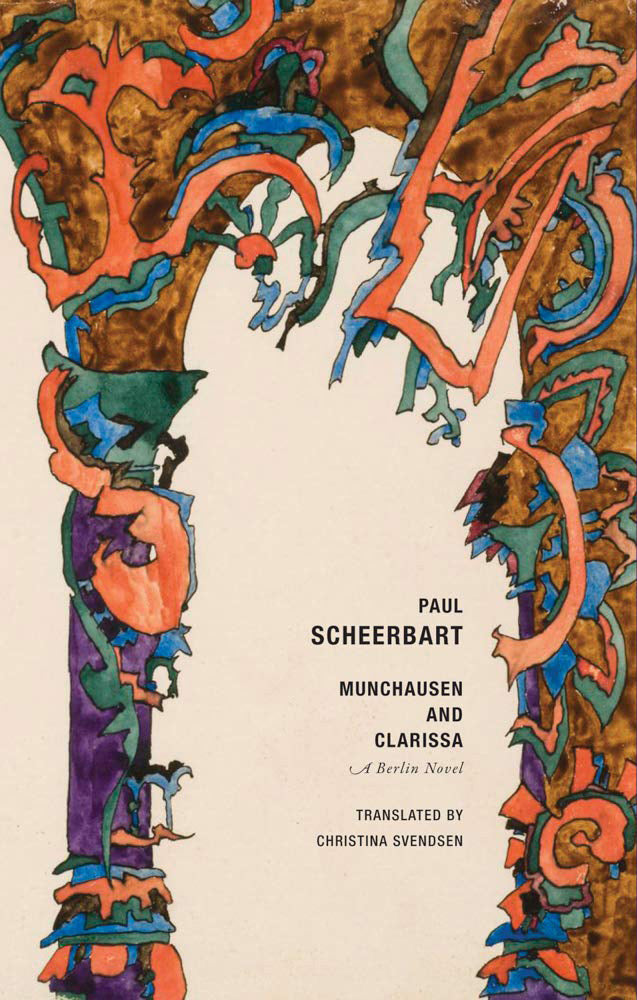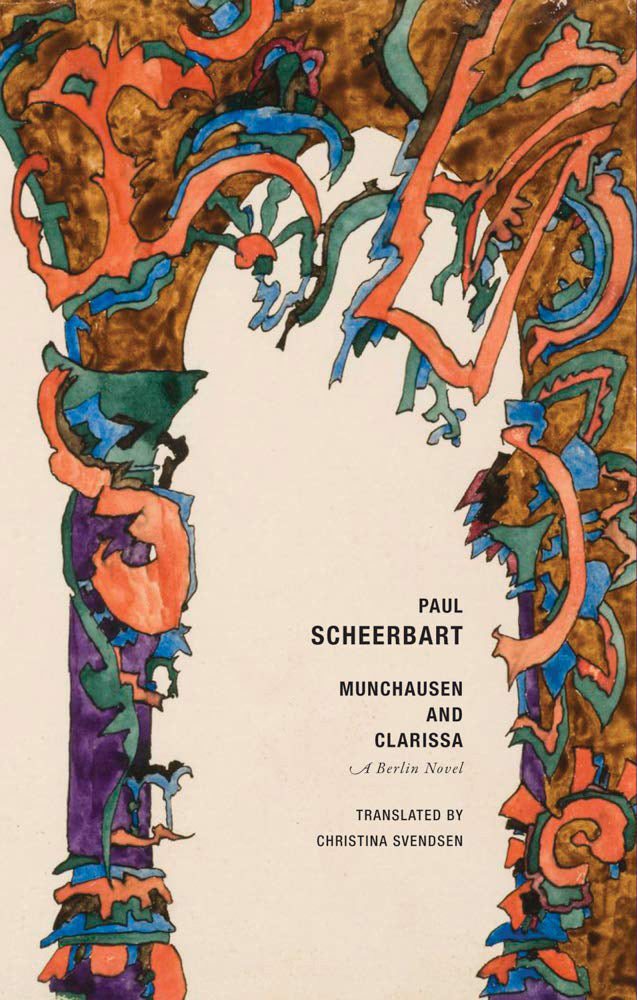Munchausen and Clarissa: A Berlin Novel
Munchausen and Clarissa: A Berlin Novel
Paul Scheerbart
Couldn't load pickup availability
Translated, with an introduction, by Christina Svendsen / January 2021 / 4.5 x 7, 176 pp. / 978-1-939663-51-1
It is 1905 and a raging stupidity is holding sway over Europe. As an eighteen-year-old Clarissa and her family take refuge from an uninspiring Berlin on the icy shores of Lake Wannsee, the legendary Baron Munchausen makes an unexpected appearance at their door. Returning to German society after a century of absence at the ripe age of 180, the Baron has new experiences to relate and is cajoled into presenting his impressions of the World Fair in Melbourne, Australia, to a select gathering of Berlin celebrities. Over the course of a week, the sprightly Baron arrives nightly by sleighmobile to combat the dreary days with a series of fantastical visions and theories, each eclipsing the previous one: he discusses mobile architecture, the role of technology in the arts, the need for sculpture and painting to ignore nature in their quest to discover new planetary organs and senses, the new household miracles of vacuum tubes for cleaning and potato-peeling machines, the repressive function of sexuality, and the need for progressive taxation. His tales of Melbourne eventually take his audience from a Deep Sea Restaurant in the ocean depths to the dwellings of mineral giants in mountain caverns before culminating in a spiritual voyage to outer space among sausage moons and sun-skins.
With Munchausen and Clarissa, Scheerbart presents—through the mouthpiece of the fabulous Munchausen and the framework of a fantastical Australia—his unifying vision for the arts and philosophy, and offers a new conception of the sublime for a dreary, skeptical age.
Paul Scheerbart (1863–1915) was a novelist, playwright, poet, newspaper critic, draftsman, visionary, proponent of glass architecture, and would-be inventor of perpetual motion. Dubbed the “wise clown” by his contemporaries, he opposed the naturalism of his day with fantastical fables and interplanetary satires that were to influence Expressionist authors and the German Dada movement, and which helped found German science fiction. After suffering a nervous breakdown over the mounting carnage of World War I, Scheerbart starved to death in what was rumored to have been a protest against the war.
Press
“In Scheerbart’s take, the Baron hypnotizes the German ruling class with his tales of his visit to a mad souped-up utopian biennale in Melbourne, Australia. He lovingly describes the city’s total vision of art and society: rooms move rather than elevators; huge observatories project human viewers into the stars; novels tell of the inner lives of molecules; people live in paintings made of three-dimensional light. Australian state management is wholly aesthetic and informs every facet of daily life. Necessity and luxury are identical and are available to all, free of charge.”
—Martin Billheimer, Counterpunch
“A witty, sparkling étude on a twentieth century that should have been, Munchausen and Clarissa is a marvellous utopian comedy.”
—M. J. Nicholls, Exacting Clam


